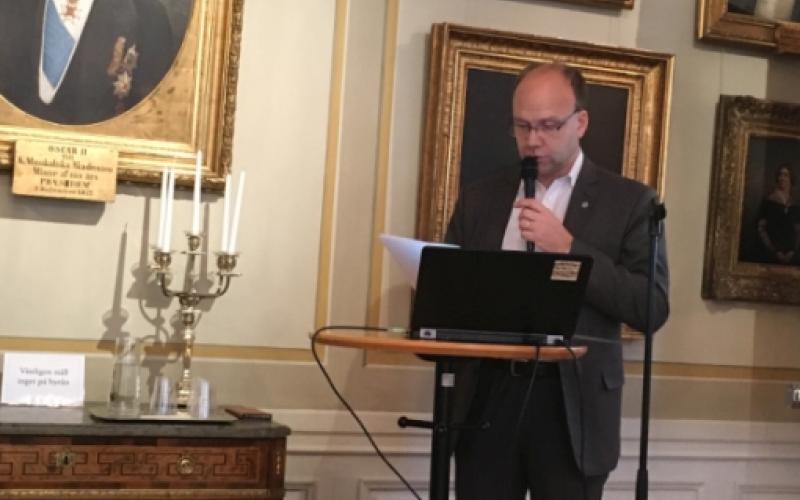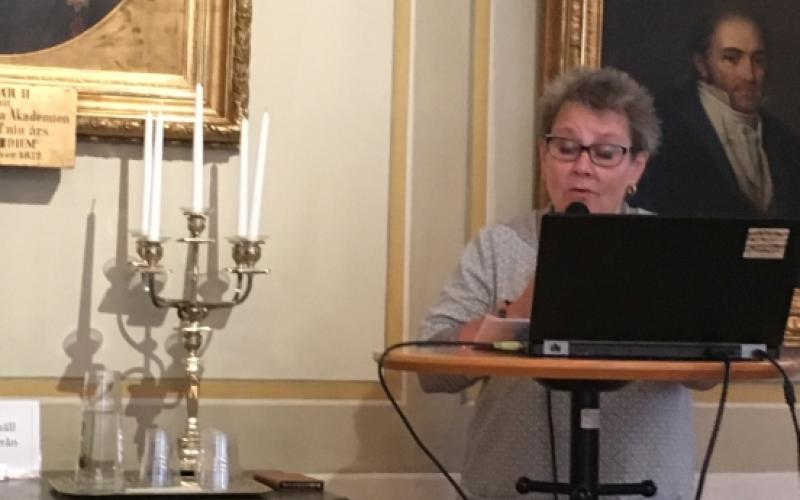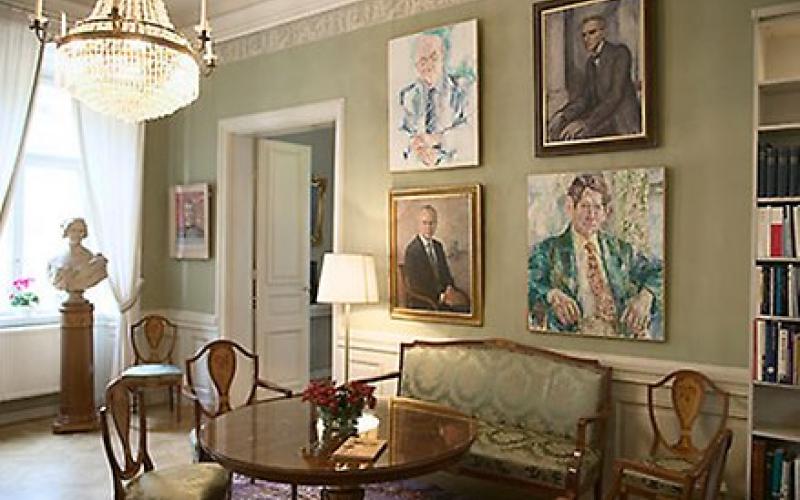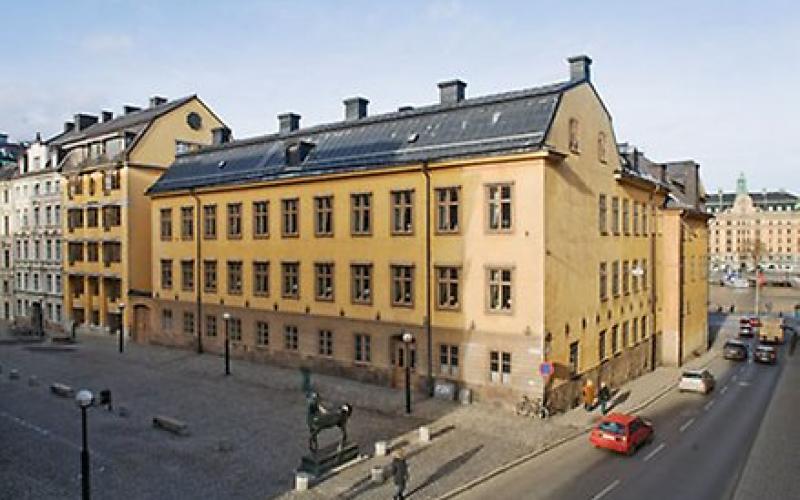I would like to share with you a short report about a very nice event that took place last week at the Royal Swedish Academy of Music in Stockholm. The initiative came from the Permanent Secretary, Fredrik Wetterqvist, who contacted the Swedish IAML Branch last spring, inviting us to the Academy. The idea then evolved into a joint arrangement between the Academy and the Swedish IAML Branch. We chose the Swedish musical heritage as the theme of the day, with the European Year of Cultural Heritage 2018 in mind. 62 persons from all types of libraries and archives with music collections in Sweden participated. We also had the pleasure of hosting four guests from the Royal Danish Library in Copenhagen and the University of Copenhagen.
The Royal Swedish Academy of Music in Stockholm was founded in 1771 by King Gustav III, with the primary objectives to promote art music and musical life in the country. The first by-laws stated that young people should have access to education “in composition, singing and musical instruments" under the direction of the academy. This is the origin of today’s Royal College of Music in Stockholm. In 1982 the Swedish National Collections of Music was formed, taking over the academy's library – now named the Music and Theatre Library of Sweden, which holds among the largest music- and theatre collections in Europe. The Academy has started to prepare for the 250-year anniversary in 2021 - the Music and Theatre Library of Sweden will of course be included in the celebrations.
Today the Academy comprises around 170 Swedish members, chosen from different areas of musical life, who have made outstanding contributions to Swedish music. In addition there are around sixty international members. The Academy plays an important role when it comes to music politics and is engaged in discussions about the future of Swedish musical life. It arranges concerts and seminars, fosters research projects, administers around 110 scholarship funds and prizes, publishes the CD-anthology Musica Sveciae and a large amount of books, not least Swedish composer biographies. “Musiken i Sverige” is a four-volume history of music that covers Swedish music history in all genres. It is now freely available online, unfortunately only in Swedish.
One of the most important projects is Swedish Musical Heritage, which comprises a comprehensive database with digitized music in public domain free for downloading, as well as extensive information on both the music and the composers – work lists, sources and bibliographies etc.
Several speakers were invited and gave presentations on different aspects of the theme of the day. Mattias Lundberg, professor of musicology at Uppsala University, gave a learned lecture about asking the sources of music the right questions. Dan Lundberg, head librarian at the Music and Theatre Library of Sweden gave a thought-provoking presentation on how to look upon musical heritage in a multicultural society. Since military music is an important part of our musical heritage, we had also invited an expert on the subject, Torgny Hanson. The last speaker of the day was a young composer, Jenny Hettne. She made a presentation on the Swedish Society of Composers, that is celebrating its 100-year anniversary this year. Finally, the day included a panel discussion about digitization and cultural heritage with participants from the National Library of Sweden, the Music and Theatre Library of Sweden, the Royal Academy of Music and Svensk Musik (Swedish Music Information Centre). The discussion was skilfully led by Kia Hedell from Uppsala University Library (and Secretary of the Swedish IAML Branch).
The day at the Academy was successful with a promising prospective, for example when it comes to collaboration around digitization. And, as always, networking was an important ingredient. The Swedish IAML Branch thanked Fredrik Wetterqvist very much for his invitation and for a splendid day in a beautiful house full of atmosphere.
All photos courtsey of Pia Shekhter.
- Facebook Like
- Share on Facebook
- Log in to post comments





